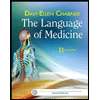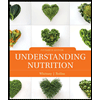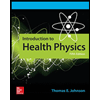
To describe: The stress response.
Concept introduction: Stress is a biological response to a stressor such as environmental conditions, threat, challenge, or other psychological and physical barriers. The autonomic nervous system and hypothalamic-pituitary-adrenal axis are the major systems that respond to stress.
Explanation of Solution
Stress is a generalized or systemic response to a stressor either internal or external. This response can be changed at specific conditions. The stress response is the generic and complex response generated by the body to any stressor. The physiologic response of the body to different types of stressors is the same, even though the response may differ in intensity and based on its effects on individuals. The three stages of stress response are given as follows:
- Alarm stage
- Resistance stage
- Exhaustion stage
Alarm stage: It is the primary stage. This initiates flight-or-fight stage of stress. In alarm stage, the adrenal glands, hypothalamus, and sympathetic nervous system are activated. In this stage, the nervous system will send signals immediately to the brain. This sends signal to all parts of the body. The general indications of alarm stage are fast breathing, sweating, and elevated heartbeat.
Resistance stage: This is the continuation of stress response. This reduces the energy levels and cause changes in the mental and behavioral patterns. In this stage, the hormone levels are increased and body systems function at peak performance. The general indications are weakness, anxiousness, exhaustion, and being forgetful. In this stage, the individuals are more prone to infections such as cold and flu.
Exhaustion stage: This is the final stage of stress response. This occurs when the body is unable to respond further. This leads to the breakdown of body systems and further reduces the ability to fight against the infections. This may lead to the loss of mental equilibrium and other complications such as blood pressure, heart diseases, and ulcers.
Want to see more full solutions like this?
Chapter 26 Solutions
Pathophysiology For The Health Professions - E- Book
 The Language of Medicine, 11eHealth & NutritionISBN:9780323370813Author:Davi-Ellen Chabner BA MATPublisher:Saunders
The Language of Medicine, 11eHealth & NutritionISBN:9780323370813Author:Davi-Ellen Chabner BA MATPublisher:Saunders Gordis EpidemiologyHealth & NutritionISBN:9780323552295Author:David D. Celentano, Moyses SzkloPublisher:ELSEVIER
Gordis EpidemiologyHealth & NutritionISBN:9780323552295Author:David D. Celentano, Moyses SzkloPublisher:ELSEVIER Nutrition Through The Life CycleHealth & NutritionISBN:9781337919333Author:Brown, Judith E.Publisher:Cengage Learning,
Nutrition Through The Life CycleHealth & NutritionISBN:9781337919333Author:Brown, Judith E.Publisher:Cengage Learning, Health: The Basics (13th Edition)Health & NutritionISBN:9780134709680Author:Rebecca J. DonatellePublisher:PEARSON
Health: The Basics (13th Edition)Health & NutritionISBN:9780134709680Author:Rebecca J. DonatellePublisher:PEARSON Understanding Nutrition (MindTap Course List)Health & NutritionISBN:9781337392693Author:Eleanor Noss Whitney, Sharon Rady RolfesPublisher:Cengage Learning
Understanding Nutrition (MindTap Course List)Health & NutritionISBN:9781337392693Author:Eleanor Noss Whitney, Sharon Rady RolfesPublisher:Cengage Learning Introduction To Health PhysicsHealth & NutritionISBN:9780071835275Author:Johnson, Thomas E. (thomas Edward), Cember, Herman.Publisher:Mcgraw-hill Education,
Introduction To Health PhysicsHealth & NutritionISBN:9780071835275Author:Johnson, Thomas E. (thomas Edward), Cember, Herman.Publisher:Mcgraw-hill Education,





